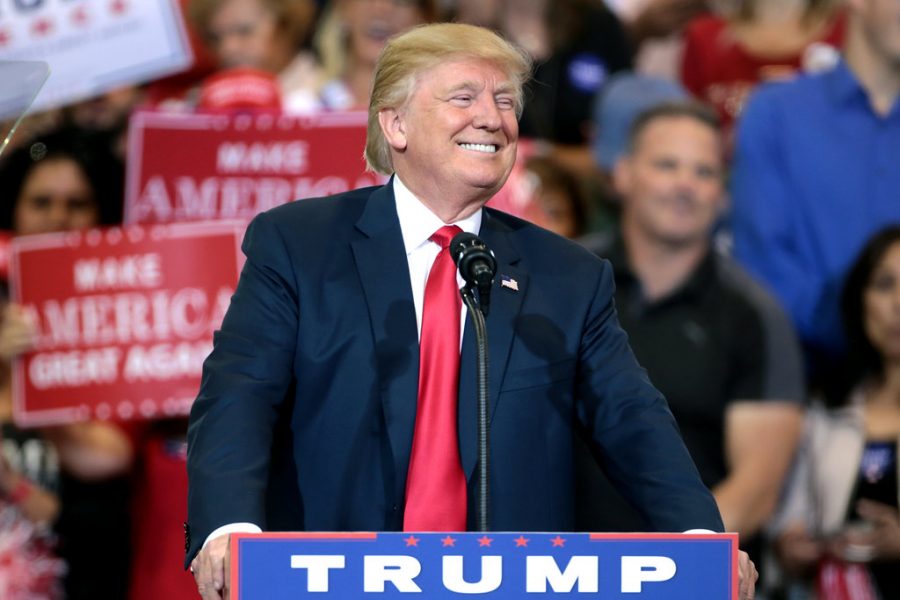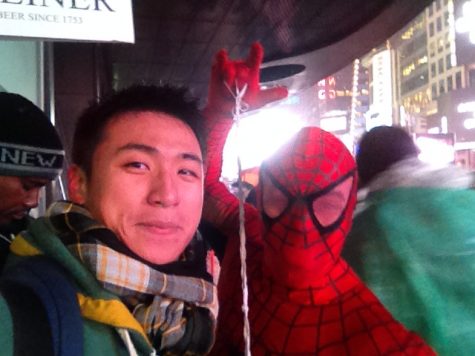On Nov. 5, Trump’s campaign filed lawsuits in Wisconsin, Georgia, Pennsylvania and Michigan, seeking a vote recount and calling for the suspension of vote-counting in four states.
The next day, Georgia announced that it would recount its votes. The three other states declared that Trump’s lawsuit had failed, and that they would continue to count. On the same night, Trump claimed on Twitter that the mailing of votes involved “great corruption and fraud.”
Because Biden’s votes in Pennsylvania showed a significant lead over Trump’s(3,378,700 to 3,460,574 at 99% reporting), Biden managed to secure 20 electoral votes. Media outlets called the election, announcing that Biden — who would go on to win 306 electoral votes compared to Trump’s 232 — had won the election. Trump subsequently tweeted, asking, “Since when does the Lamestream Media call who our next president will be?”
“Although I’m not following each of Trump’s lawsuits closely, news outlets are reporting that courts have rejected every one he has filed because his lawyers can point courts to no evidence, no facts of actual election fraud,” SF State political science professor Martin D. Carcieri stated in an email to Xpress.
Carcieri, who specializes in public law and political theory, has had his work cited in amicus curiae briefs to the U.S. Supreme Court in five landmark cases.
He added that prosecution without evidence would be futile and unable to change election results, and that U.S. law is capable of determining the authenticity of the evidence.
SF State economics professor Michael Bar said that while Trump has the right to contest the election results to check for irregularities, prosecutions cannot pass without meeting certain standards. “I don’t think he has a chance to win,” Bar said. “Regardless of who is the president, if there is irregularity in the election, it’s in our best interest to find out and prevent it in the future. Like if there are dead people voting or some people voting more than one time, and the votes are incorrectly registered, in those cases we want to correct the mistakes.” But Bar added that he believes even checking for these irregularities cannot change the outcome of the election.
Zena R. Mello, an associate professor of psychology at SF State, has conducted research examining psychological factors that facilitate the health of racial or ethnic minorities, women, and low-income adolescents.
“My opinion stems from data I collected on adolescents’ reactions to the 2016 presidential election. In this study, adolescents expressed fear, worry, and anger about President Trump,” Mello said. “The participants were also keenly aware that Trump targeted minority groups including individuals with sexual, racial, ethnic, and immigrant marginalized identities. I imagine that adolescents would have strong emotions about the litigation.”
Data show that California has gone to the Democratic nominee since Bill Clinton won the state in 1992. In California, Biden won 63.5% of the vote, compared to Trump’s 34.3%.
Some California voters expressed their thoughts on Trump’s prosecution of individual states.
Yash Gandhi, a San Francisco voter and engineering student at SF State, said that while he supports Biden, he is skeptical of whether the results will remain unchanged between now and January.
“I feel relieved and a little bit scared as well — we won’t know for sure till January 28th,” Gandhi said. “Trump is still going to prosecute and do anything to be the U.S president, and that’s what I am anxious about. Let’s see how far he can go and how far we let him go.”
Jason Donald, a member of the San Francisco Municipal Transportation Agency who voted for Biden, said he believes that regardless of whether votes are recounted in a given state, Trump will eventually lose because of the sheer disparity in the number of votes.
“I feel great that Trump will lose this election. I was rolling against him the whole time. He is not a great president,” Donald said. “ I don’t think he will win his litigation because even if they find miscount votes, there are not many able to overturn the result.”
Electors will meet to officially cast their votes on Dec. 14, finally an end to the necessity for Trump’s litigation, if not the litigation itself.












